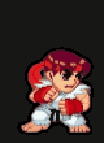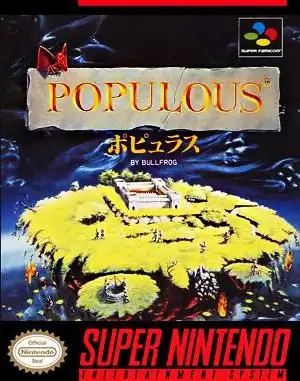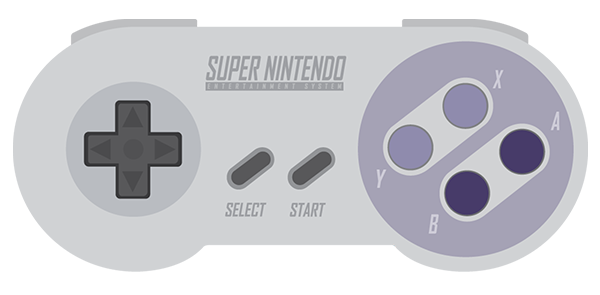Stepping back into the 16-bit era, few console ports of classic PC strategy games landed with the impact of the original. While Populous is legendary for pioneering the "god game" genre on computers, its arrival on the Super Nintendo brought that unique divine power trip to a whole new audience. For many, the Populous SNES version was their first taste of shaping worlds and guiding tiny worshippers.
But how did this intricate simulation translate to the Super Nintendo's hardware? And what made the Populous SNES experience stand out from its groundbreaking PC ancestor? Let's dive in.
What is Populous, Anyway?
Before we get to the SNES port, let's quickly recap the magic of Populous. Developed by the visionary minds at Bullfrog Productions (led by Peter Molyneux), Populous cast you not as a hero or general, but as a deity. Your goal? Guide your ever-growing population, manipulate the very landscape they inhabit, wield divine powers, and ultimately lead your followers to wipe out the followers of a rival god.
It was a real-time strategy game unlike any other, focusing on environmental manipulation, population growth, and strategic divine intervention rather than direct unit control. You'd raise mountains, flatten land for houses, unleash earthquakes, floods, or even volcanos – all fueled by the "mana" generated by your loyal (and sometimes not-so-bright) followers.
The Populous SNES Port: How it Stacked Up
Bringing a mouse-driven, isometric PC strategy game to a console with a D-pad and face buttons was no small feat in the early '90s. Imagineer handled the development of the Populous SNES version, and they made some interesting choices.
While the core gameplay remained intact – raise/lower land, build houses, gain mana, smite foes – the interface had to be adapted. Navigating the world and selecting powers felt different, relying on cursor movement rather than direct clicks. It wasn't quite as fluid as a mouse, but it was a commendable effort for the time.
Crucially, the Populous SNES port included a unique feature: the Three Little Pigs race. This wasn't in the original PC game or other ports, adding a quirky, console-exclusive touch for players who chose that version.
Another significant difference, noted by those who played both, was that the console versions (including SNES) did offer a definitive ending after completing a certain number of worlds, unlike the potentially endless nature of the original PC campaign. This gave console players a clearer sense of completion.
Playing God on the Super Nintendo
The heart of Populous was the satisfying loop of terraforming and divine power. On the SNES, this loop was still incredibly addictive. You'd watch your little "peeps" wander, build houses on flat land, and generate mana. You'd spend that mana on raising or lowering terrain, creating pathways across water, or isolating enemy settlements.
As your mana grew, you'd unlock devastating powers like swamps to slow enemies, knights to lead attacks, or the aforementioned natural disasters to reshape the battlefield drastically (and often chaotically). The isometric view, while sometimes tricky to navigate with a D-pad, still gave a clear sense of the world you were sculpting.
Battles were less about micro-managing units and more about overwhelming the enemy with sheer numbers, strategically placed leaders, and well-timed divine interventions. Seeing your followers swarm the enemy's territory after you'd carefully guided them there felt genuinely powerful.
Reception and Legacy on the SNES
While the PC original garnered universal acclaim and pioneered a genre, the Populous SNES port was also well-received. Japanese magazine Famitsu gave it a respectable 31/40. Retrospectively, it's often included in lists of notable SNES titles. Complex ranked it #98 on their list of the best SNES games, and IGN placed it at #70 on their "Top 100 SNES Games of All Time," acknowledging its quality and significance even on a platform not typically known for complex strategy titles.
It proved that the core concept was strong enough to transcend input methods and platforms, introducing the unique "god game" experience to a generation of console players who might never have touched the PC original.
Finding Populous Today
If you're feeling nostalgic and want to revisit the original Populous experience, the PC versions are readily available digitally on platforms like GOG.com. These versions are often bundled and configured to run smoothly on modern systems using tools like DOSBox.
Playing the exact Populous SNES port requires emulation, as it hasn't seen official re-release on modern Nintendo platforms like the Switch Online service (at least not yet!). However you play it, experiencing this foundational god game is a must for any retro strategy fan.
FAQ
Is Populous SNES the same as the PC version?
No, while the core gameplay is similar, the SNES version has differences including adapted controls, unique features like the Three Little Pigs race, and a defined ending.
Who developed Populous SNES?
The SNES port was developed by Imagineer, whereas the original PC version was by Bullfrog Productions.
Is Populous a real-time strategy (RTS) game?
It's often considered a precursor or early example of RTS, but it's more specifically categorized as the first "god game" due to its focus on divine powers and indirect control of followers.
Can I play Populous SNES on modern consoles?
Currently, the Populous SNES port is not officially available on modern console services like Nintendo Switch Online. Playing this specific version typically requires emulation. The original PC versions are available digitally on GOG.com.
The Divine Nostalgia of Populous SNES
The Populous SNES might not be the definitive version of this genre-defining classic, but it was a vital gateway for many players. It brought the unique thrill of shaping worlds, nurturing followers, and unleashing divine wrath to the comfort of the living room, proving that deep strategy could thrive even on a console. It remains a fascinating and fun piece of retro gaming history, well worth revisiting for a taste of 16-bit godhood.


